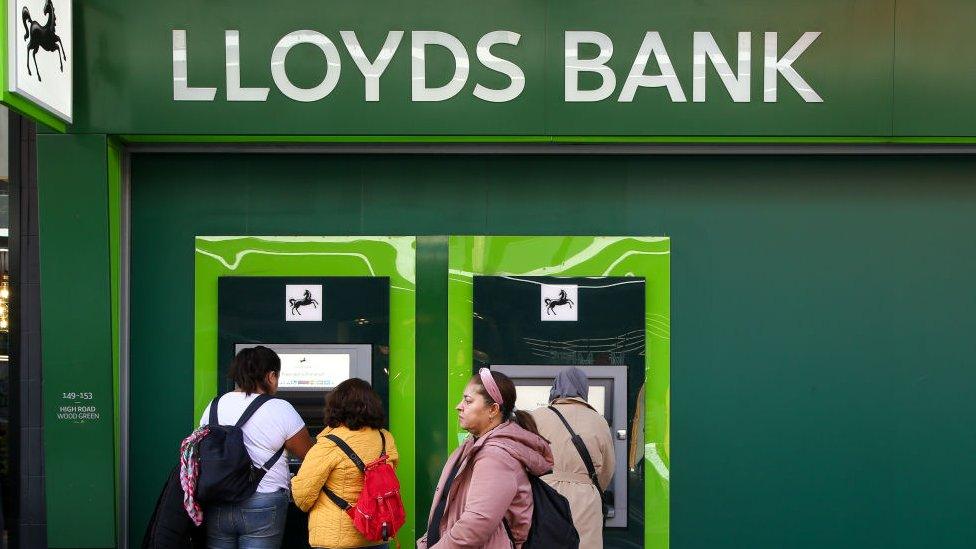Bishop of Norwich calls for faster rollout of bank hubs
- Published
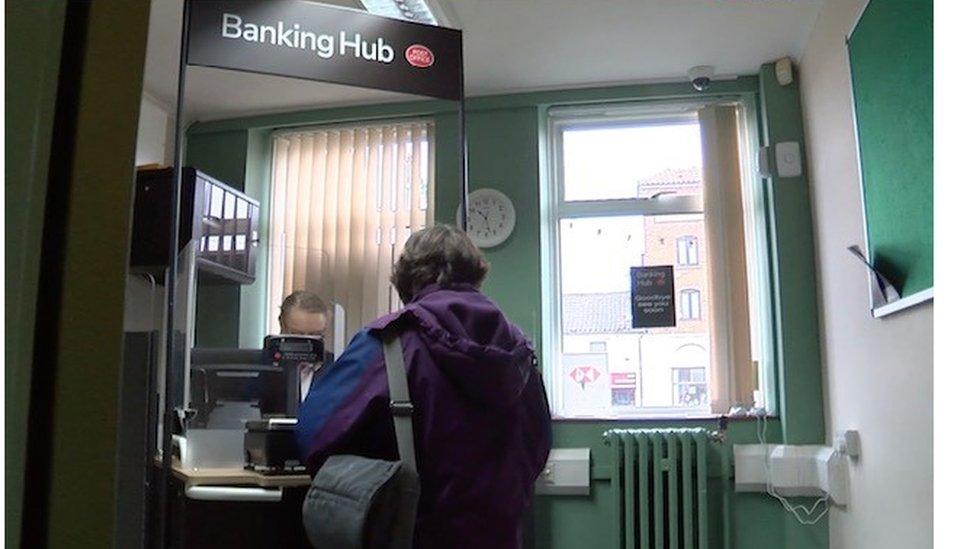
Bishop Graham Usher says bank hubs can be a lifeline for communities who do not live near a bank branch
The Bishop of Norwich has called for a faster rollout of bank hubs to support rural communities whose local branches have closed.
The Right Reverend Graham Usher was speaking after the industry announced another round of bank closures.
He said that vulnerable people, the digitally excluded and charities would still need to visit a bank in person, despite a fall in customer numbers.
He added: "There is absolutely still a need for banks."
The government said that bank hubs, which would provide shared banking facilities and a community banker, were "an exciting development" - but it accepted the rollout of them was happening too slowly.
Bishop Usher, who speaks on rural matters for the Church of England, raised his concerns in a debate in the House of Lords on 25 January.
He said the town of Wymondham, Norfolk, had lost three of its five banks within 12 months, and no banks remained in Watton, Norfolk. He added: "The withdrawal of banks from market towns has disadvantaged sections of our community."
Barclays closed its branch in Watton last year, after customer transactions at the bank had fallen by 64% in the previous 12 months.
Bishop Usher told the BBC's Politics East Programme that while he accepted that many people were using internet banking and making cashless payments, the closure of branches was still an issue for some people.
"There are those who are vulnerable and digitally excluded. There are some people who like to have face-to-face conversations, especially if they have sensitive things to deal with.
"There are also charities and building societies who, if they're dealing with cash, need places where they can deposit it," he said
"There is absolutely still a need for banks, particularly in our rural areas."
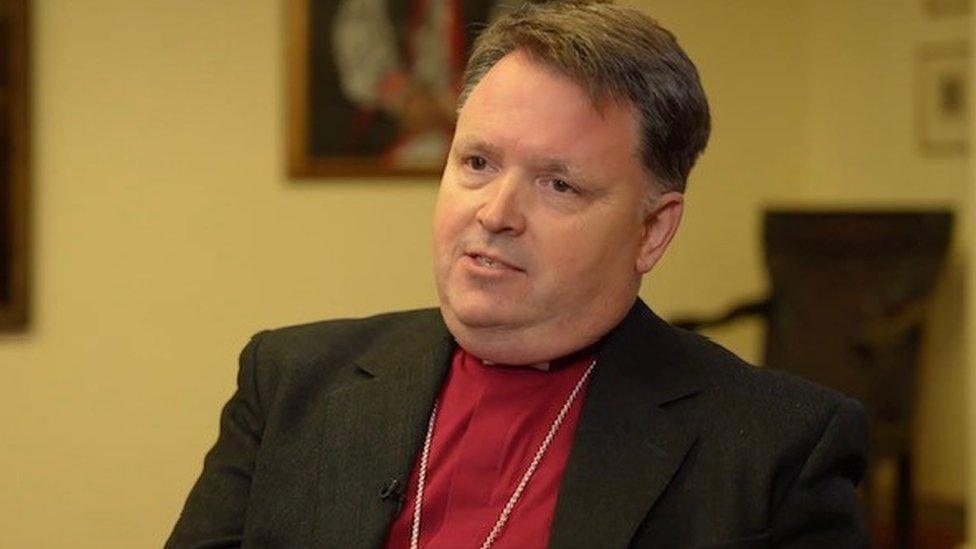
Bishop Graham Usher accepts that closing a bank branch is a commercial decision, but says rural communities need alternative provision
Bishop Usher thought the future lay in bank hubs, and he highlighted that one that had recently opened in Watton.
The hub, which is run in conjunction with the Post Office, offers full banking and cash deposit facilities. A number of banks also send a representative to visit to hold in-person meetings with customers.
"I'm quite excited by bank hubs," said Bishop Usher. "But there are only 31 of them across the UK at the moment, and there's a real need for that number to increase - particularly as bank closures are accelerated."
"I also think the government can play a crucial role in making it a requirement that a bank hub is established before the last bank in town goes."
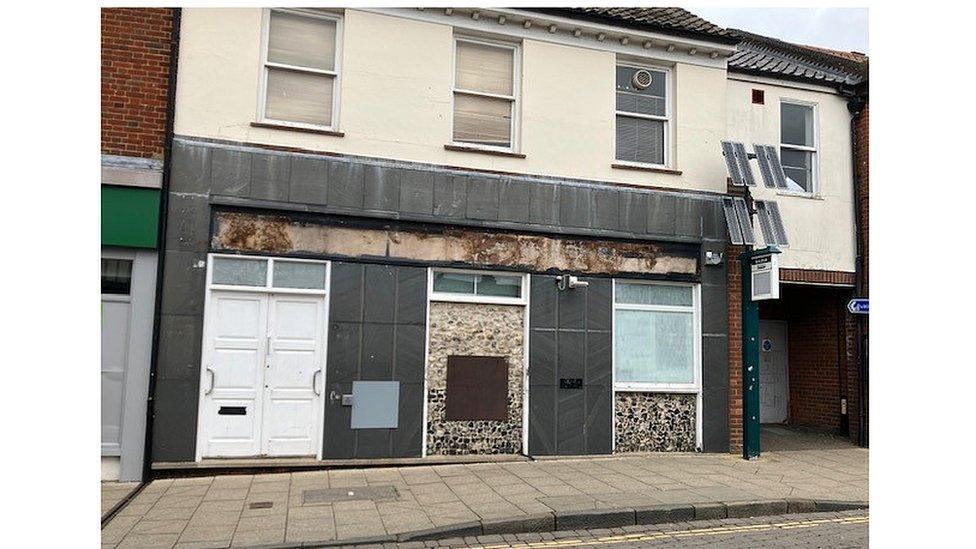
The former branch of NatWest in Wymondham which closed last year
Charities and some MPs with rural constituencies, including the North Norfolk MP Duncan Baker, have also called for greater speed in establishing bank hubs, after 50 bank branches closed across the east of England last year.
Treasury Minister Baroness Vere praised the development of the hubs during the debate in the House of Lords. She said that she had been assured by Cash Access UK, which provide the bank hubs, that the number that were open would rise to 50 by Easter.
"I agree that the speed of the rollout has potentially been too slow, but this is a relatively new intervention and the processes are now in place.
"I am pleased to report that [Cash Access UK] tells us that it expects the pace of delivery of bank hubs to continue to improve over this year," she said.
The Post Office said that in the east of England only Watton and Rochford, Essex, had bank hubs. But it expected to open new hubs in Downham Market, Harleston, Haverhill, Royston, Ware and Hatfield over the coming months.

Follow East of England news on Facebook, external, Instagram, external and X, external. Got a story? Email eastofenglandnews@bbc.co.uk or WhatsApp 0800 169 1830
Related topics
- Published26 January 2024
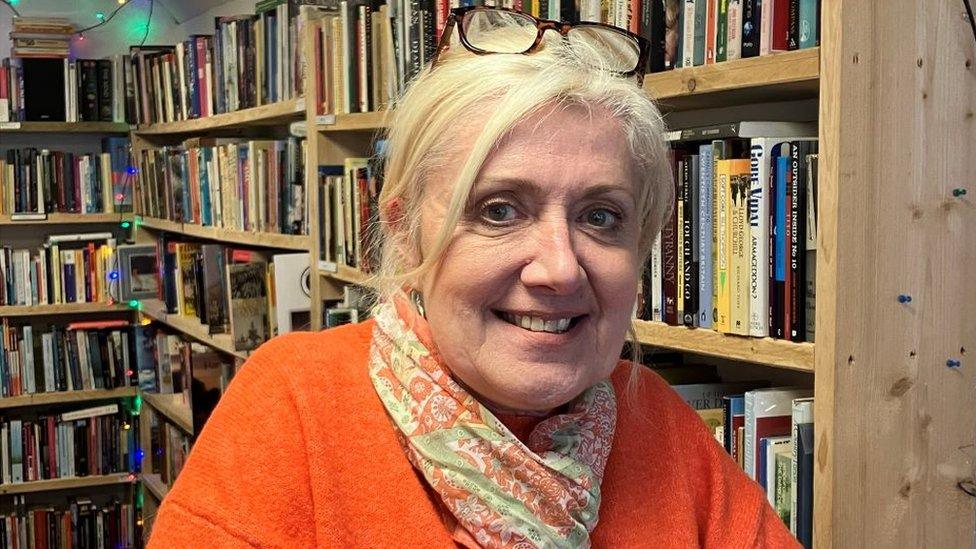
- Published25 January 2024
